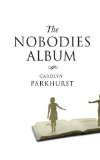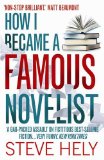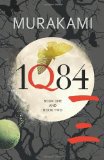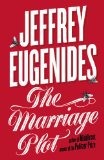My favourite books of 2011 all contain some degree of metafiction. It seems as though metafiction has come of age this year, with authors embracing the unconventional to produce wonderfully original books.
What is Metafiction?
Metafiction is a term used to describe books that self-consciously step outside the typical narrative style of fiction; they may address the reader directly or play with the reader’s perception of the book’s reality.
In recent years I have noticed a big increase in the number of metafictional novels. I think social media has enabled writers to feel more comfortable with directly addressing their audience. The way these authors push the boundaries of the typical novel impresses me and I think the continual rise of new technology will only encourage authors to create a greater range of these books.
My Favourite Books of 2011
The Afterparty by Leo Benedictus is the cleverest example I’ve come across. The book begins with an email to a literary agent enclosing the first chapter of a yet to be published novel. Through a series of email conversations the reader gets an insight into the publishing industry, the thrill of reading an exposé of celebrity culture and an incredibly intelligent subplot revolving around who the author really is. This is metafiction at its best and I’m sad it failed to be highlighted by any of the major awards this year.
The Nobodies Album by Carolyn Parkhurst defies genre classification. On the surface it is a murder mystery, but the book also contains extracts from novels written by the narrator. These novels are then re-written over the course of the book, giving an insight into how our perspective of events changes as we age. The book also directly addresses the reader at many points:
If this was a murder mystery, this is the part where I would talk to the doorman and discover the clue.
I was impressed by the ambitiousness of this novel. It was thought-provoking as well as entertaining and I hope many more people decide to read it.
How I Became A Famous Novelist by Steve Hely is the funniest book I’ve read this year. It is a parody of the publishing industry and takes an entertaining look at what it means to be a best-selling author. I highly recommend it to anyone interested in the publishing industry.
The Biggest Books of 2011
You may not of heard of the above books so I’ll need to step away from my favourites if I’m to convince you that 2011 is the year of metafiction.
The biggest book of the year is 1Q84 by Haruki Murakami.
Metafiction.
.
How about the biggest US release, The Marriage Plot by Jeffrey Eugenides?
Metafiction.
Do you think 2011 is the year of the metafictional novel?
Do your favourites include many metafictional books?






33 replies on “The Best Books of 2011 All Contain Metafiction?”
Hi Jackie! I haven’t read any of them except for 1Q84 which I started last weekend and am liking so far. But they all look interesting and I’m keeping note of the titles, especially The Nobodies Album. I enjoy reading metafictional novels just because they always surprise you.
Sakura, I haven’t read 1Q84 yet – with Murakami I prefer the experts to go in and write lots about it first – that way I can look up anything that I get confused with!
I love the surprise elements of metafiction too – they often seem a lot cleverer than normal fiction. I hope you enjoy the ending of 1Q84 🙂
I haven’t read any of them yet but I love Eugenides and I have 1Q84 on my list.
Beth, I hope you enjoy them whenever you get around to reading them 🙂
I loved The Nobodies Album. I’ve never read anything quite like it.
Sandy, Yes – it was an amazing book. I suggest you read The Afterparty – it is similar in its cleverness 🙂
Same here, I thought it was a very clever idea. Odd at first, it took me a little to get used to it, but then I enjoyed it.
I can’t say I’ve read any (at least I don’t think so) or heard the term before, but I want to give one a go now, it sounds great! I’m intrigued by The After Party, but for the idea of rewriting a novel during a novel I’d have to pick The Nobodies Album.
Charlie, Give them a try! The structure of them is very impressive – a whole new reading experience 🙂
Am loving the sound of the first two hugely, and I already bought the Hely novel after your review. Can’t say I’m particularly attracted to IQ84 or the Eugenides, but I am willing to be convinced. I like metafiction in general though, being a big Paul Auster fan.
Annabel, 1Q84 and The Marriage Plot are both highly literary books that will require effort to read and so are both quite daunting. I will read 1Q84 at some point, but it will have to be when I have a lot of free time! I’m sure you’ll love the Hely book and if you enjoy that then you can just move on to the others – I’m sure you’ll love them just as much.
The only one I have read is The Marriage Plot. In fact, I haven’t even heard of the three that you listed as favorites but the fact that you loved them so much speaks volumes. I’ll be honest, I haven’t heard of the term metafiction before so that is something I will have to ponder.
Stephanie, I’m not surprised that you haven’t heard of my three favourites – they didn’t receive much blog coverage 🙁 Hopefully that will slowly change as word of mouth gets out about how wondeful these books are.
I’m not sure that metafiction is really a new thing or that it is only gaining prominence now, though I do enjoy it, whether it’s new or not. I just think about people like Jasper Fforde and Penelope Lively, both of whom have been doing this for quite some time. I’m sure there are others, but those are the two that spring to mind immediately.
Also, despite really enjoying metafiction, the only book on your list that I’ve read is The Nobodies Album… I am so out of the loop of late!
Steph, I know that metafiction has always been around, but I have noticed a big increase in it recently. Perhaps I’m just more aware of it now? Or perhaps it is less subtle? I’ll have to dig back into the archives and see what I can find!
I think today’s audience is a little more accepting. Over the years I’ve heard I don’t even know how many people refer to these types of novels as just “too Postmodern.” Maybe as a group, readers are getting over the backlash. 😀
Andi, That is interesting! I can believe that people are only now accepting of books that break the mould. People are a lot more tolerant nowadays.
Even though our reading tastes don’t always align, I’m convinced that I would enjoy all three of these and have already made motions in The Afterparty‘s direction (partly because it coincides with my current Friday obsession with epistolary works): metafiction is one of my favourite things.
It’s not a new phenomenon, so maybe it’s just that your current reading stack has been infiltrated in this particular way, the bookish universe’s conspiracy; there is probably a story-within-a-story waiting to be told about how your TBR pile was formed?! Two of my long-time favourites in this vein are Ursula Hegi’s Intrusions and Michael Cunningham’s The Hours. (I think you might find the former fun, but I’m less sure whether you’d enjoy the Cunningham.) Thanks for recommending the above!
Buried In Print, “there is probably a story-within-a-story waiting to be told about how your TBR pile was formed?!” LOL! Yes. I’m sure that is true! And I guess I am actively seeking out more now, which will only make the trend seem even more obvious. Thanks for the recommendations – I think I’ve seen the film of The Hours, byt Intrusions sounds interesting. I’ll keep an eye out for it.
I guess the Maxwell Simm book is an example of metafiction… but only at the very end of the book. Coming so late in the book, I found it very disturbing and wasn’t happy with it.
Judith, I haven’t read Maxwell Simm – the reviews haven’t excited me. I didn’t realise it had metafictional elements. Sorry they didn’t work for you 🙁
Well, I guess I like metafiction too because The Nobodies Album and the Hely book were favorites of mine too. I shall have to read The Afterparty!
Jenners. You shall! I’m afraid it isn’t available in the US yet, but the book depository solve all international book buying problems 😉
I do think meta-fiction is kind of a hot trend right now, although it’s been around for a long time. It seems like a popular way to be adventurous and experimental, although if it gets too popular it ends up being neither. As far as I’m concerned, it’s great when done well and terrible when done badly, like any other literary trend :).
That said, I’m almost finished with the Eugenides, and I’m not sure I’d call it meta-fiction, unless something happens in the last couple of chapters to change my view. There’s a lot of talk about literature, and you could make a case that this is a sort of modern version of the Victorian “marriage plot” novel–and maybe a response to later criticism of that kind of book. But there aren’t any narrative tricks or anything. The storytelling is really straightforward, old-fashioned even.
Teresa, I don’t want to give anything away, but I think you’ll change your mind about the Eugenides being metafictional by the time you reach the end. 🙂
I agree about metafiction being terrible when done badly – I’ve read a few stinkers this year too 🙁
I hadn’t really considered The Marriage Plot as metafiction and now I feel like I missed something. Which aspect of the story would you consider metafiction – I’m very curious, especially since I enjoyed the book so much. 🙂
Alyce, The very last page of The Marriage Plot is metafictional. I don’t want to spoil things for those who haven’t read the book, but basically metafiction is when a book is about another book. It is quite subtle in The Marriage Plot – the books I mention as my favourites are a lot more obvious in their intent. 🙂
What an interesting post – metafiction as a concept is new to me though I love to be challenged and surprised when I read. The only book I’ve read that might fall into that category is A Visit from the Goon Squad – is that metafiction, I loved it anyway? The Afterparty really appeals to me so I’ll keep a look-out for it.
Liz, I’m not an expert on metaficiton – there are so many different definitions and people disagree about what is and isn’t included. I’m pretty sure that A Visit from the Goon Squad has metaficitonal elements, but I could be wrong. You’ll have to go and study all the articles on the Internet (as I did last week!) and end up as confused as I was!
not sure if any of these I d call pure meta fiction ,as for my favourite book in the style mine be the new york trilogy by paul auster ,larnark by Alasdair Gray and if on a winters night .. by Italo Calvino ,I think the fourth wall has been broken for a while ,all the best stu
There was a time I didn’t like metafiction, because it was too “derivative” or very much like spin-offs. But lately, I’ve been reading a few and enjoying them all. I love how much they stretch our imaginations, and question ‘why not’, when I might ask ‘why’.
It may well be the year of Metafiction. The last two books you mentioned interest me no end!
Oh, now I’m particularly eager to try The Marriage Plot! I think I might have a too literal definition of metafiction. Maybe I just need to read more to find any subtleties?